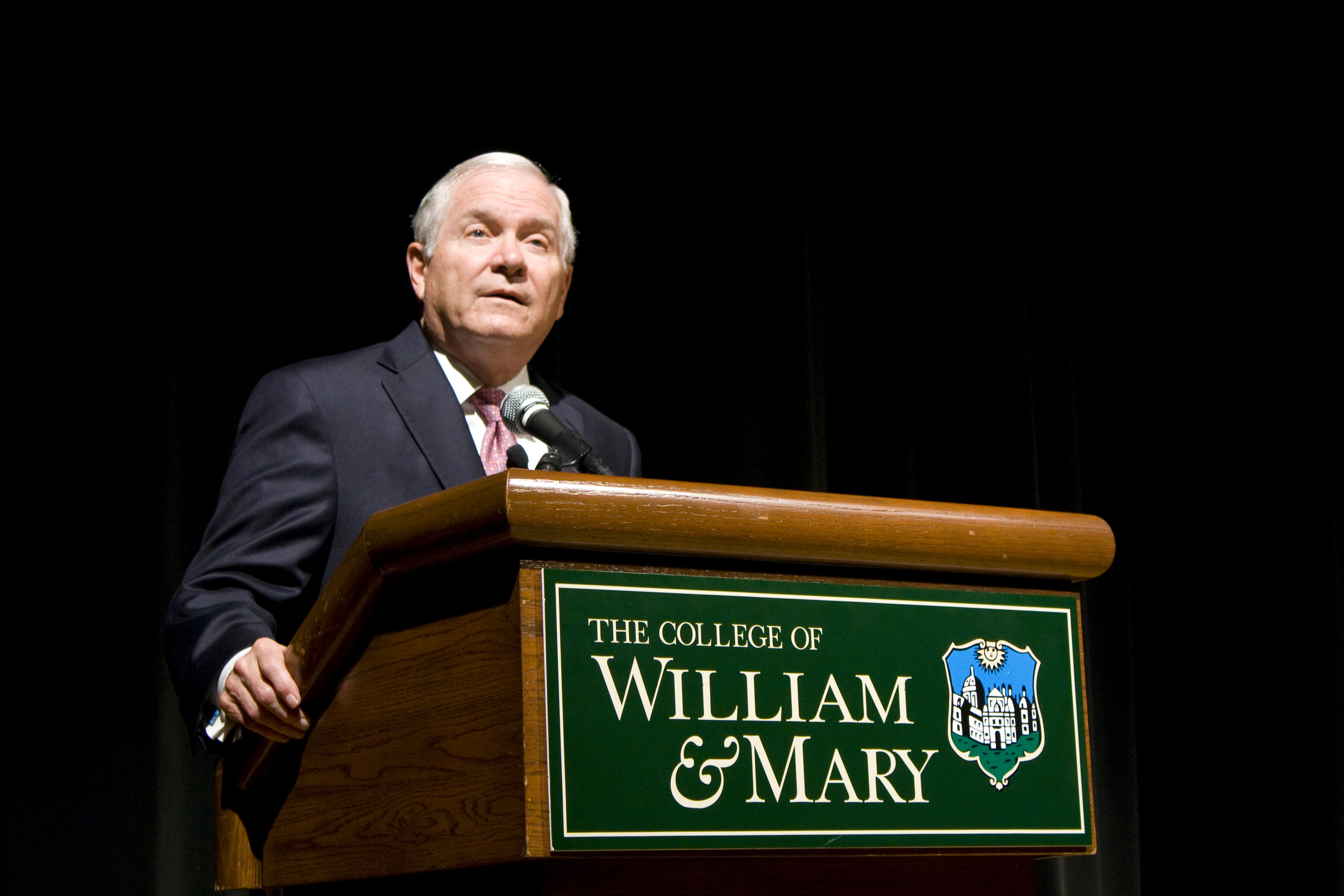College of William and Mary Chancellor Robert Gates ’65 did not hesitate when a student in Thursday’s question-and-answer forum asked what he views as the biggest threat facing the United States.
“Washington, D.C. — I’m not kidding — the two square miles between the Capitol and the White House,” Gates said. “Our political paralysis and the sequestration are doing more damage to our strength as a country … than anybody else in the world is doing.”
In addition to expressing his frustration at what he described as politicians putting self-interest ahead of patriotism, Gates answered questions from students on topics ranging from the right to privacy to the current situation in Syria.
When discussing foreign policy, Gates emphasized the unpredictable nature of the situation in the Middle East and the need for the United States to proceed cautiously before taking action in Syria.
“For us to begin to tactically weigh in and involve ourselves militarily in one of those areas of conflict, particularly one as complex as Syria right now, is a serious mistake,” Gates said.
Gates also described his personal experiences serving in the CIA, as the U.S. secretary of defense and as president of Texas A&M University, focusing on how each experience impacted his decision-making processes.
As a leader, he stressed that each role taught him the importance of inclusiveness and transparency.
“If you want to make meaningful, lasting change, you have to bring [everyone] under the tent, believing they are part of the solution,” Gates said.
The final question centered on Gates’ advice regarding failure.
Gates mentioned the “D” he received in calculus as a freshman at the College before moving on to describing one of his bigger setbacks: In 1987, he was nominated to become the head of the CIA but decided to withdraw his name when it became clear the Senate would not approve the nomination. Despite the embarrassment Gates said he felt at the time, the experience of withdrawing his name helped him gain allies, including former U.S. Senator Alan Cranston, a Democrat who unexpectedly voted in Gates’ favor when he was nominated for the position again four years later.
“I made friends and won allies that I had never, ever anticipated just because of the way I’d handled it. … You never know what’s going to happen, but the way you handle a setback, the way you handle a failure, will make all the difference in your life,” Gates said.
Some students at the College may be unaccustomed to failing, Gates said. However, he emphasized that the most successful people he worked with over the course of his career were those who had dealt with failure and moved past it.
“The truth is, failure is an amazing teacher,” he said.

